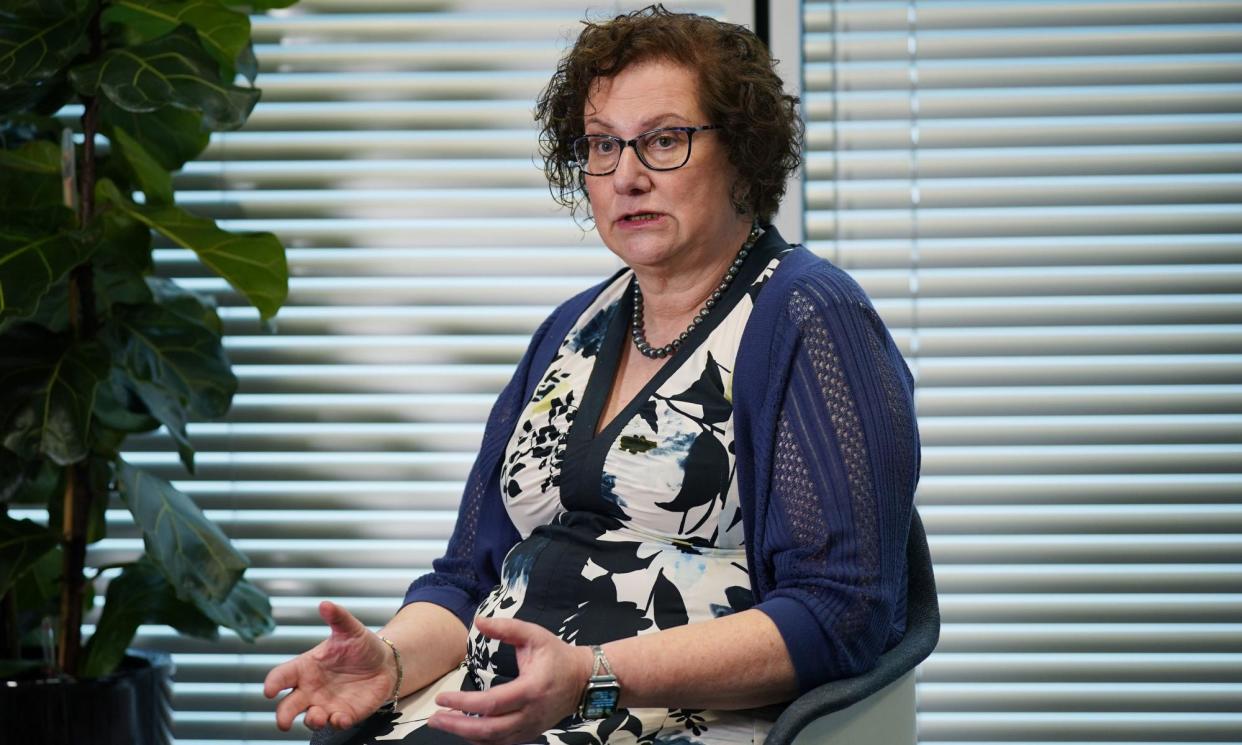Cass review ‘absolutely’ not unfair, author tells Scottish parliament

The Cass review “absolutely” did not set an unfairly high bar for evidence, its author has said, as she addressed “significant misinformation” about her assessment of healthcare provision for gender-questioning young people in England and Wales.
Giving evidence to the Scottish parliament’s health committee on Tuesday morning, Dr Hilary Cass said she believed Scotland could benefit from the more holistic approach recommended in her review, commissioned by NHS England.
She also expressed frustration at wrong information circulated about the review of evidence about the impact of medical interventions such as puberty blockers and cross-sex hormones on young people, which was undertaken by the University of York as part of her review.
“There has been the question of ‘Have we set a higher bar for this systematic review?’ and we absolutely haven’t,” she told MSPs. “These young people should get the same standard of evidence in their care as every other young person.”
Last month, the review found “weak evidence” for the use of puberty blockers and cross-sex hormones to treat young people experiencing gender incongruence and said that this vulnerable cohort had been “let down” by the “toxicity” of the debate surrounding their care.
She told the Holyrood committee: “To be clear, there was an incorrect piece of information being circulated that 98% of those papers [focusing on the effects of puberty blockers and cross-sex hormones] had been disregarded and that only randomised controlled studies were included.
“Both of those things are wrong. There were no randomised controlled trials [and] 58% of the 102 papers were included in the analysis because they were of high or moderate quality.”
After the publication of her review, Scotland’s only clinic to offer treatment to gender-questioning young people, the Sandyford in Glasgow, paused prescribing puberty blockers and cross-sex hormones. The Scottish government has come under increasing pressure to fully adopt the recommendations after it set up a multi-disciplinary team of clinicians to consider how to apply them to NHS Scotland.
Cass, who suggested Scotland could become a regional centre, sharing research and data across the UK, used the session to address other misconceptions resulting from the review’s publication.
“The trans community has been concerned that we’re looking at detransition to say we shouldn’t be giving gender-affirming care,” she said, referring to interviews the review had conducted with individuals who subsequently decided to live as their birth-registered gender. She said it was important to adding it was important to understand “what are the factors that lead [individuals] to detransition, were there earlier signs that this may not have been a successful pathway for them?”
Cass said she would want to explain any less-than-successful medical outcome to inform someone contemplating the same procedure, but added: “That’s not telling them they can’t do it.”
She told the committee she had “really deep concerns” about private provision, adding that self-medication by young people was “happening way more than we would wish”.
Earlier this week, the Guardian revealed concerns that a growing number of under-18s may go online to access cross-sex hormones.
“It does put people at considerable risk to not have the level of assessment we are describing,” she said.
She also said the Scottish government faced a “big challenge” in its proposal to ban conversion practices. Cass said that, while the practice was “completely unacceptable”, legislators should take care not to deter clinicians from having “appropriate exploratory conversations” or make them “even more anxious potentially about working in this area”.


